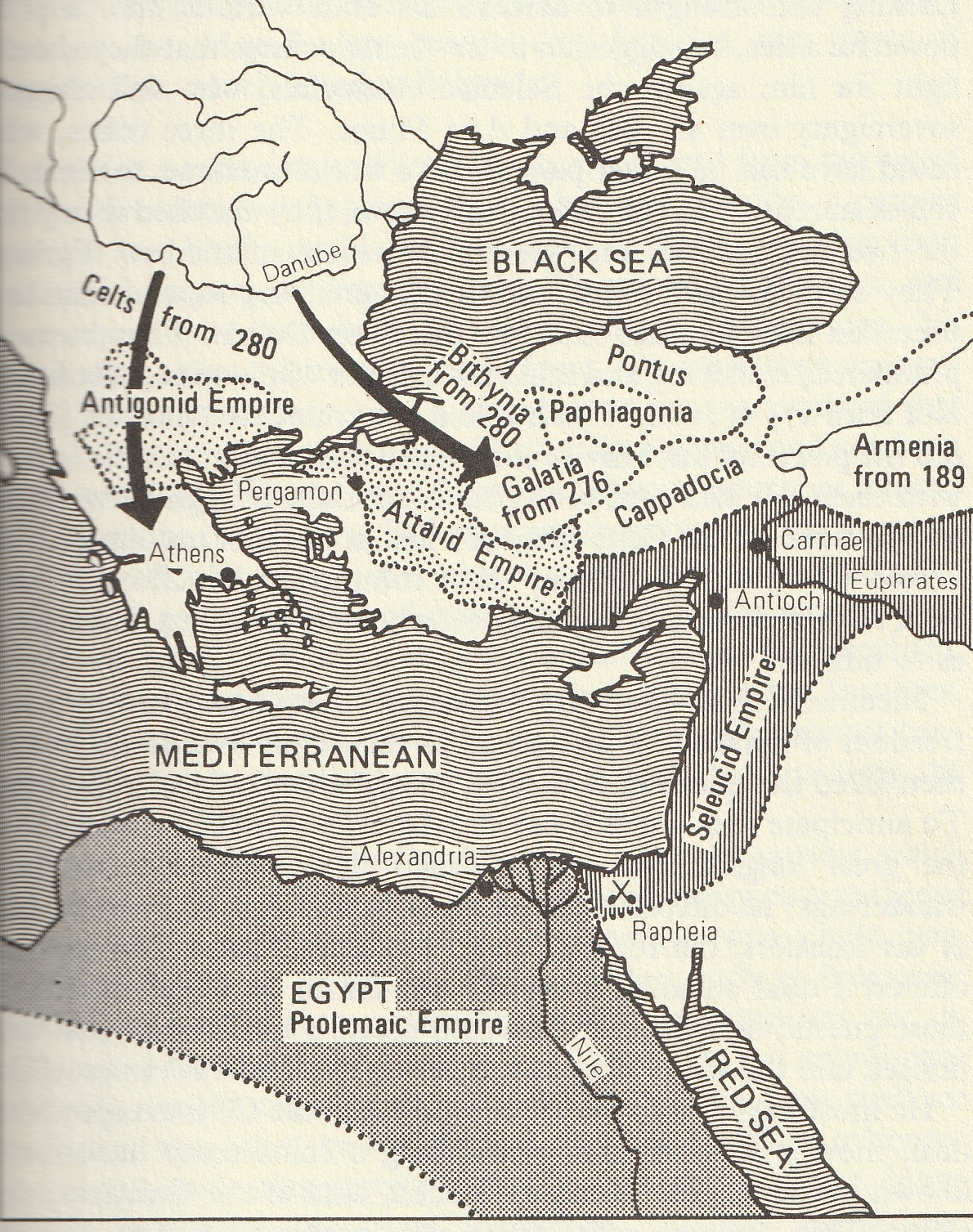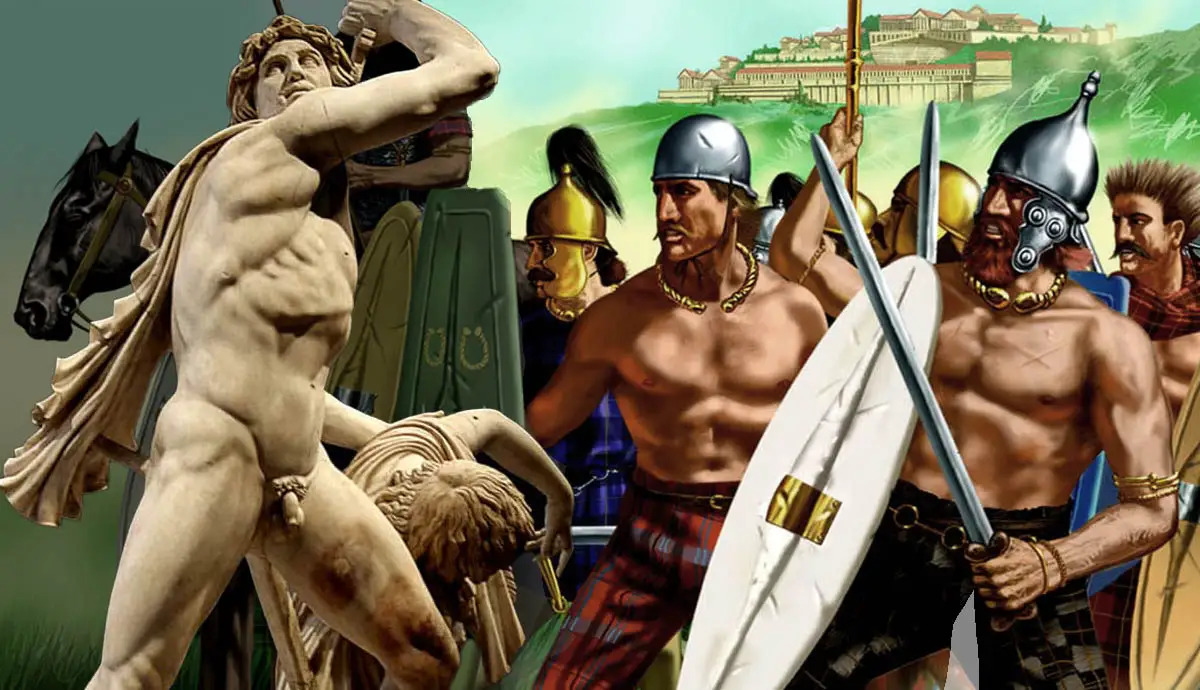 Pen & Sword History continues to take my money. One of the batch of my most recent order from Hamilton Books is The Galatians by John D. Grainger. Subtitled “Celtic Invaders of Greece and Asia Minor,” this is the most comprehensive text I have ever read on the Galatians.
Pen & Sword History continues to take my money. One of the batch of my most recent order from Hamilton Books is The Galatians by John D. Grainger. Subtitled “Celtic Invaders of Greece and Asia Minor,” this is the most comprehensive text I have ever read on the Galatians.
History has episodes of wandering tribes leaving their homeland for whatever reason whether overpopulation, failed harvests, a downturn in weather etc. Today, the nation of Hungary is due to Ugric speaking Magyars leaving their homeland east of the Ural Mountains where their kin, the Khanty and Mansi still live. They entered the steppe and had an epic trek to the Danubian Basin in the 9th Century A.D. There are pockets of Tatars, descendants of Mongols scattered within the Russian Federation. I have written about the Vandals who made it from Scandinavia to North Africa in the 5th Century A.D.
The Galatians were Celts who made their way from the Danube to central Asia Minor. Grainger’s book is 223 pages. He is an expert on the Hellenistic Era. The book starts with a Celtic migration to where Belgrade (Singidunum) stands today and the formation of a Celtic state under the Scordisci tribe.
The Scordisci respected the Macedonians under Alexander the Great, Antipater, and Cassander. There was a preliminary raid after Alexander’s death. A period of chaos in Macedon with the un-liked adventurer Ptolemy Ceranos taking the crown of Macedon. He did not last long as he got himself killed fighting an invasion of Gauls.
Grainger goes into great detail on the three Celtic warbands under Bolgios, Brennos and Akichorios, and Leonnorios and Loutarious.
He makes a point I have never seen made the states that stood up and fought Celtic warbands became leaders of their geographic areas- Rome in Italy and the Aetolian League in Greece.
The little known Celtic realm of Tylis in Thrace is given as much history as can be gleaned. It appears it was a protection racket that extorted gold from Byzantium and other Greek cities on the Black Sea.
Three Celtic tribes, the Trocmoi, Tolistobogii, and Tectosages were transported across the Bosphorus into Asia Minor as mercenaries in a Bithynian civil war. Nikomedes of Bithynia encouraged the Celts to go on their way once they won the civil war for him. The Galatians settled south and west of Bithynia where they would be a useful buffer against the Seleucids.

Grainger sets the record straight. For years, I had read Attalus of Pergamum defeated the Galatians finally forcing them to settle down. It was Antiochus who first defeated the Tolistobogii in what became known as the Battle of Elephants around 270 B.C. (exact date not known). Attalus later inflicted a defeat on the Galatians but they were already long settled.
The mechanics of Galatian rule of the three tribes in central Asia Minor under the tetrarchs is covered. Their way of life remained somewhat rural, they avoided cities, preferring raising of horses and sheep.
The Galatians supplemented their income as mercenaries as they inhabited a rather harsh area. A chapter is devoted to Celtic mercenaries in the service of various Diadochi Hellenistic monarchies. I read once that Herod the Great had Gaulish mercenaries but Grainger does not mention them.
The campaign of the Romans against the Galatians is covered and the massacre of Galatian nobles by Mithradates Eupater of Pontus at a banquet is told. Grainger includes the history of the Scordisci also. They had a feud with the Illyrian Dardanian tribe and there was bad blood with the Dacians.
I can’t recommend this book highly enough. I had burned out on Celtic histories. Grainger approached it from within the context of Macedonian/Diadochi history made it interesting to me again.

Please give us your valuable comment